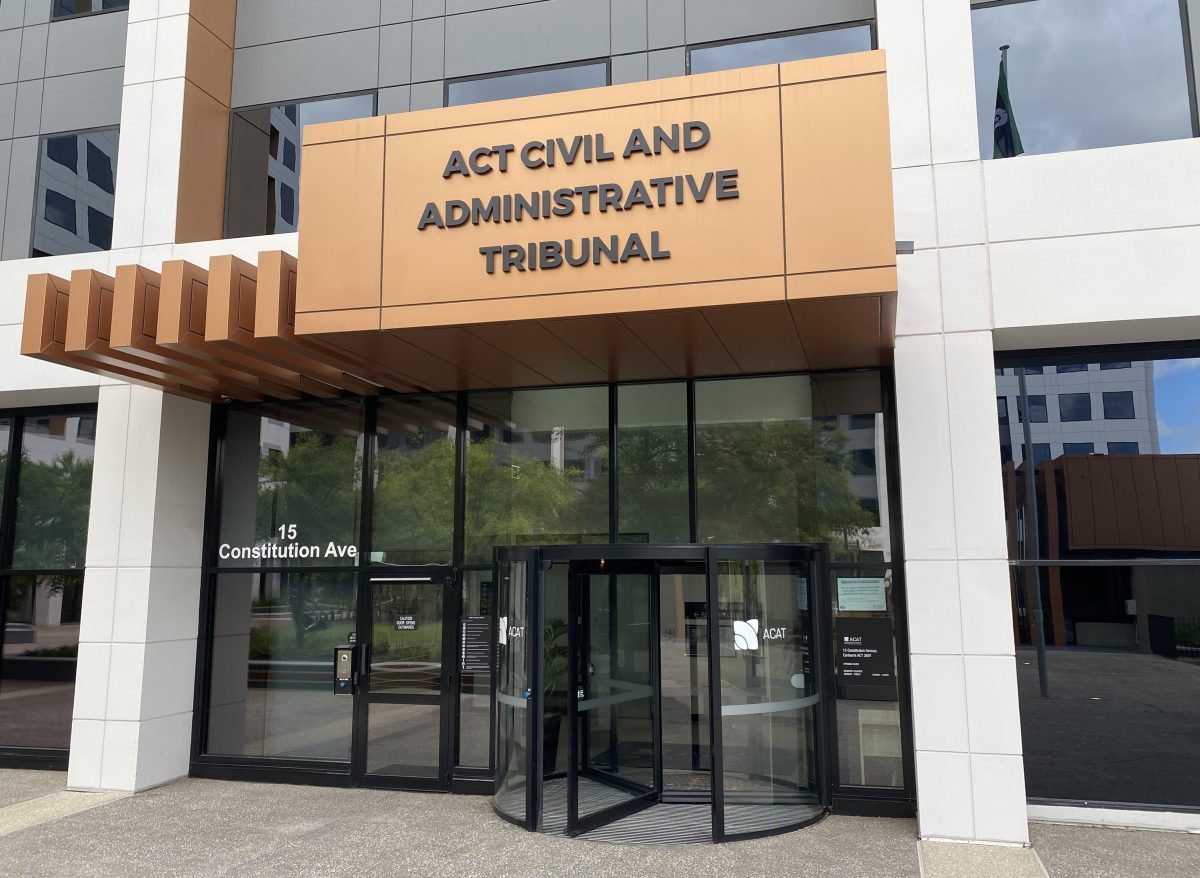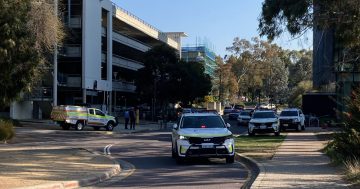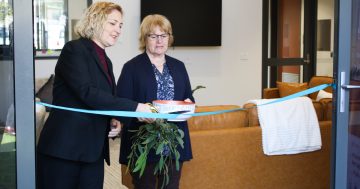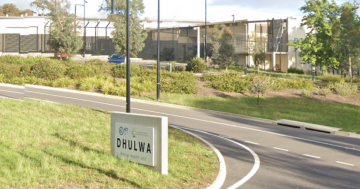
Changes would see better communication channels between mental health clinicians and ACAT. Photo: Claire Fenwicke.
The ACT’s tribunal could soon be required to have a forensic mental health professional be part of decisions over leave requests from people who are under the care of mental health services.
A Chief Psychiatrist’s report into the treatment and care of people found not guilty of a crime because of mental impairment was prepared after an inpatient of the Gawanggal Mental Health Unit, who had been granted day leave, allegedly attacked four people at the ANU in September, 2023.
The report made 35 recommendations, many of them technical and pointing to changes needed in the law and the way information is passed between clinical mental health workers and organisations such as ACAT.
ACAT is responsible for imposing orders on a person found not guilty because of mental impairment – not the courts – and also considers leave requests.
Mental Health Minister Emma Davidson said the review had given agencies the chance to find out what more could be done to improve community safety as well as provide the best care for people with complex and forensic mental health needs.
“[The report notes] that our public mental health clinical services in the ACT are very good, but we want to make sure that information about someone’s mental health needs are flowing to the right decision-makers at the right moment,” she said.
“There should be mechanisms that allow information to be provided [to ACAT] already, but to really make that clear, put it in writing … [that] this is how this should happen, this is when it should happen, these are the qualifications required for the people who need to be providing that information, is going to be very helpful for everyone to ensure that nothing is missed.”
Ms Davidson said the recommendation around involving forensic mental health specialists in the decision-making process for leave requests was particularly important so that ACAT could be well informed about what risks needed to be managed, as well as how it could help a person’s recovery.
“Leave doesn’t always mean someone is out for the whole day, it might be that they’re only out for maybe half an hour or so to undertake a certain activity, it might be with supervision or it might be unsupervised,” she said.
“Those are quite complex decisions and having forensic mental health expertise involved in the decision-making process is important for everyone.”
Recommendations also went to involving a person’s carer or family members, as well as potentially the Victims of Crime Commissioner or Human Right Commission, when making decisions around leave.
At the moment ACAT also doesn’t need to consider a person’s prior offending when deciding what type of mental health order a person who has been found not guilty by way of mental impairment should receive.
It’s been recommended ACAT should consider the “psychopathology and other criminogenic factors” that contributed to a person’s offending by getting a report from a forensic psychiatrist.
A cross-government taskforce has been announced to consider and enact the recommendations, consisting of representatives from ACT Health, Canberra Health Services, the Justice and Community Safety Directorate and ACAT.
New laws may need to be introduced – or changes may need to be made to laws such as the Privacy Act, Mental Health Act or ACAT processes – to make this happen.
“Sometimes what can happen is that you have a legislative framework that enables people to share information when necessary, you might even have some policy and procedures that enable information to be shared regularly when it’s needed,” Ms Davidson said.
“But if the culture has been that we need to focus more on one thing rather than another, that can make it difficult for people to be clear about who needs what information and when.
“So providing that clarity is going to be very helpful for everyone involved.”
A separate report has been made into the specific circumstances around the ANU attack and how the alleged perpetrator Alex Ophel came to be in the vicinity. This report will not be made public due to legal restraints.
While Ms Davidson couldn’t comment specifically on his case – which is also before the courts – she said there were always “lessons to be learned”.
“Some of those are reflected in [these] recommendations … [for example] there’s a recommendation that goes to what happens when clinicians need to contact police to say ‘we think there’s something that needs to be addressed here’ and making sure it’s addressed with the right level of urgency,” she said.
“There will be other things in the Chief Psychiatrist’s report that have nothing to do with that particular incident but it’s still an opportunity to improve our systems.”




















